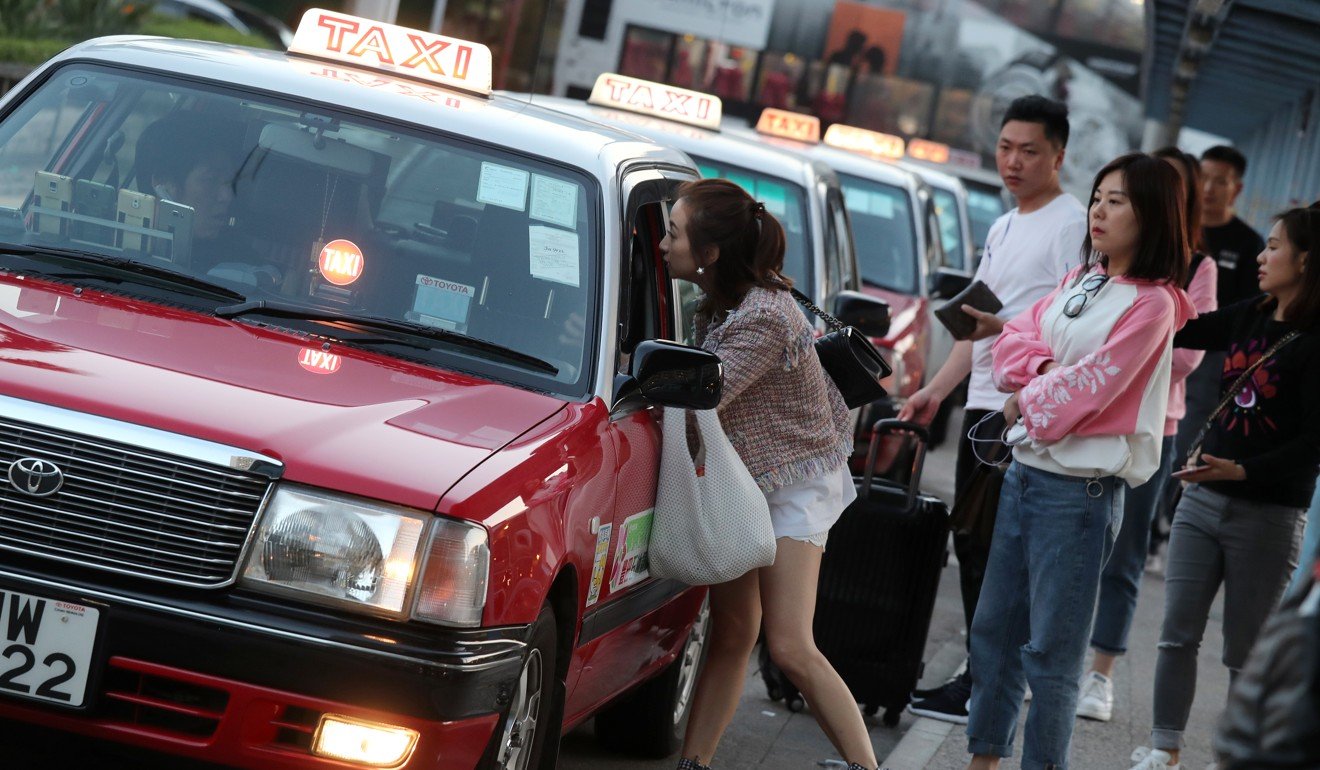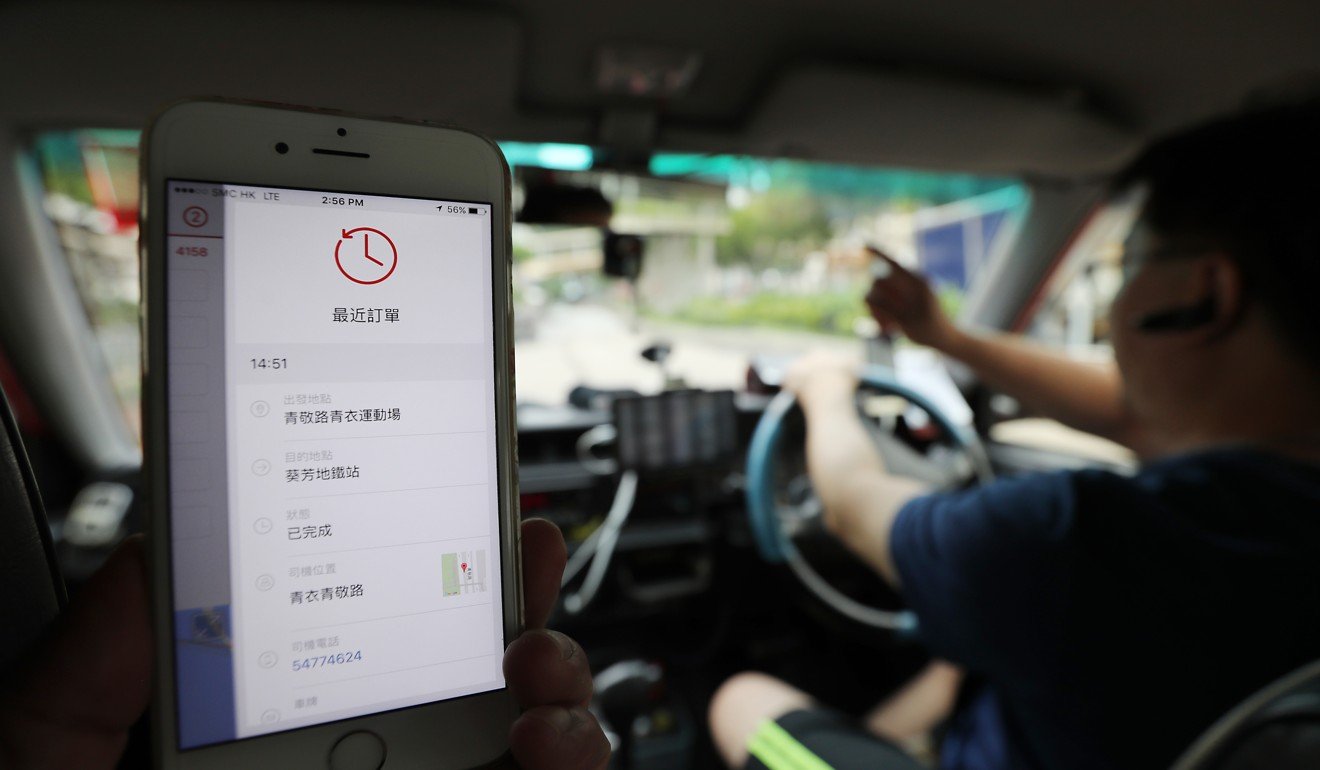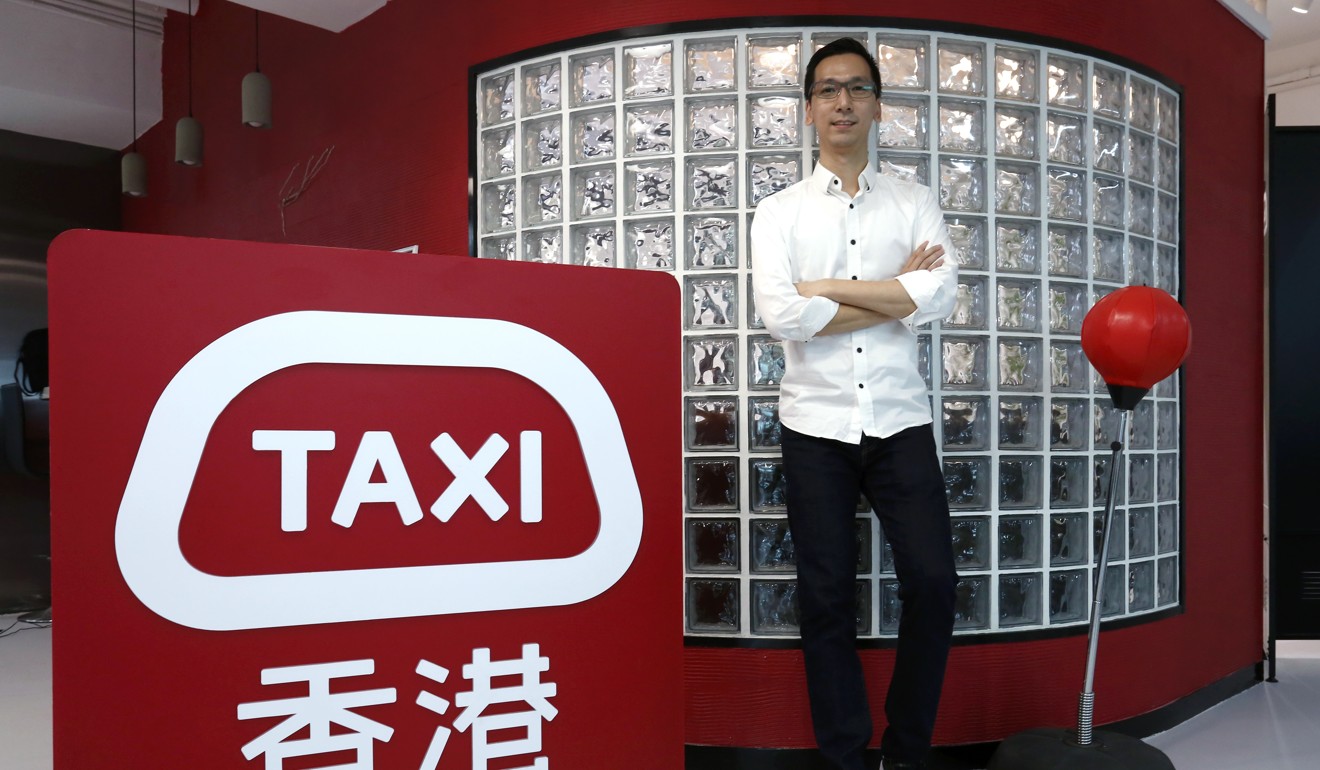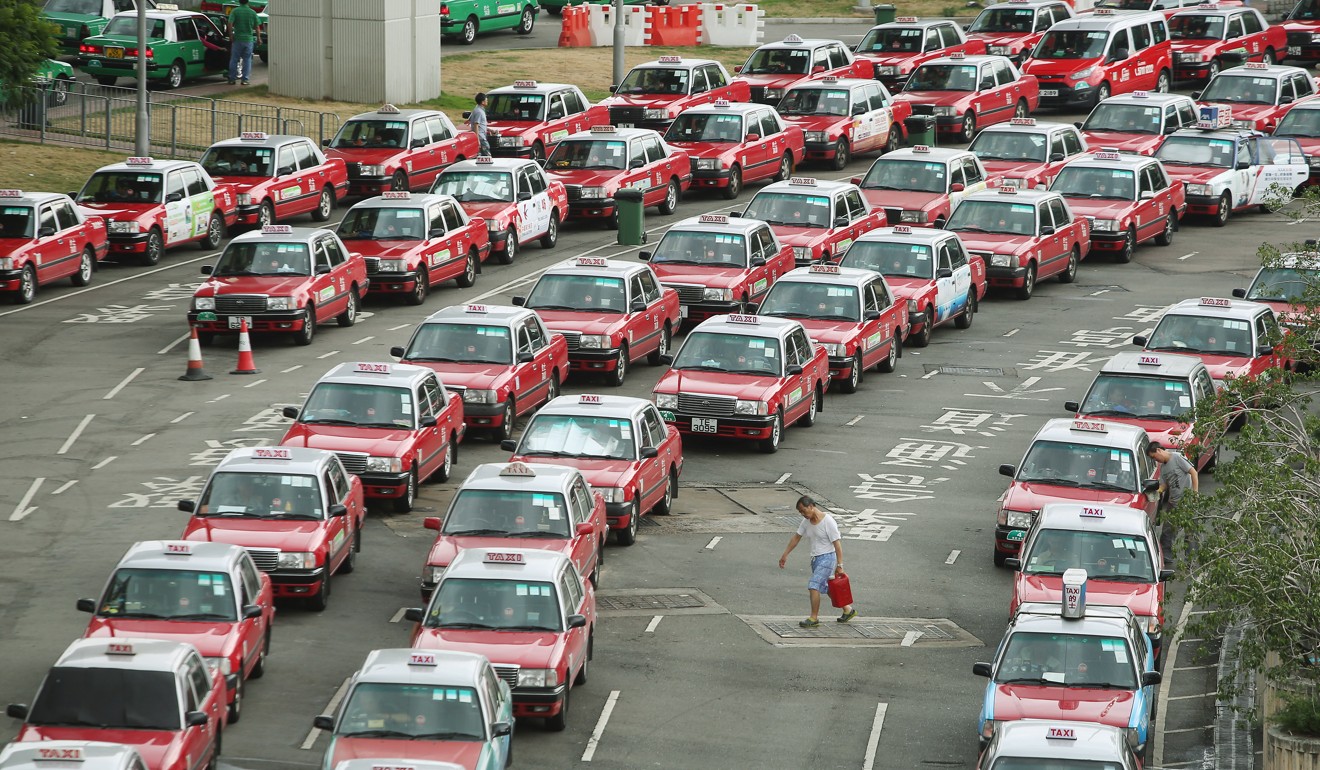
Two entrepreneurs behind the city’s most popular taxi-hailing app have said they would up the stakes and invest HK$100 million (US$12.8 million) in luxury cabs if the government pushed through its controversial plans for a new upmarket service.
Kay Lui, 34, co-founder of HKTaxi, has revealed he and his business partner Maff Wong, also 34, plan to bid for the operation of 200 premium cabs under the proposed franchised taxi scheme, which is likely to go before the Legislative Council this year.
The government wants to see a new fleet of 600 higher-quality cabs on Hong Kong’s streets, with operators able to charge more for journeys.
Launched in July 2013 by the two newcomers to the taxi industry, HKTaxi has a 70 per cent market share in the ride-hailing market, with more than 60,000 registered drivers and over 1.4 million users.

Employing about 30 staff, it has served 40,000 to 50,000 orders every day in a competitive market also featuring Fly Taxi, God Taxi, eTaxi and SuperCab.
Under the government’s plan, three franchises would be granted following a tender process, with each running a fleet of 200 taxis which can charge fares 50 per cent higher than the normal rate.
A franchised taxi operator must offer online hailing services and new vehicles with at least half of the fleet having wheelchair access. HKTaxi is the first to announce its intention to bid for the franchise.
Requiring a minimum capital investment of HK$50 million, the project aims to offer passengers a premium service, and an alternative to the existing system served by 18,163 cabs, as customer discontent grows over bad driver conduct.
Complaints about overcharging, cherry-picking passengers and taking circuitous routes jumped 2.2 per cent to a record high of about 11,000 last year.

However, the plan has met with strong resistance from the taxi sector. An alliance of 42 taxi groups headed by the Hong Kong Taxi Council has banded together to oppose the scheme, saying it would hurt the struggling industry.
HKTaxi’s Lui said: “Our assessment is that we need an investment of HK$100 million for running 200 premium cabs but we can still make it profitable with our existing platform.
“Our pool of investors are all supportive of our ambition. We can surely raise this amount of funding for the tender.”
The two founders said they set their sights on premium taxis because they believed in the scheme’s good intentions and were upbeat it would break new ground for the city’s old-fashioned and notorious taxi trade.
“This scheme could provide a good opportunity to gradually reform the taxi industry with a refreshing user experience for passengers. For the drivers, they have good incentives to upgrade their image and deliver a quality and professional service,” Lui said.
“We think that this is the first step in the right direction for improving the city’s taxi service. We hope to participate in this scheme for making changes in a market plagued by a bad reputation.”

Liu believed they have an edge over other competitors with the use of the existing HKTaxi platform to maximise the business for both the premium cabs and the ordinary cabs.
“This will be a win-win for both types of taxis under our platform,” he said.
Aspiring to improve people’s quality of life with technology, Lui set up HKTaxi from scratch with Wong, his secondary schoolmate, with very limited savings in 2013.
A graduate of economics and finance at the University of Hong Kong, he joined Google in the US as a software engineer for four years until 2012 when he came back to Hong Kong hoping to launch a tech start-up with Wong, an IT professional.
“I have always had a passion for technology. I hope to create something that can benefit people’s well-being,” he said.
The pair, who taught themselves how to design apps online, developed HKTaxi on their own after spotting demand from passengers to hail a ride easily and for drivers to pick up the orders quickly.
“We knew nothing about the taxi industry at that time. We just wanted to try out our new app and see if we can hit the big time,” he recalled.

Using sharp wit and engaging in strategic research, the pair managed to reach out to thousands of cabbies about their new app via WhatsApp.
Through ads on Facebook and word of mouth, the app immediately gained attention from passengers and quickly attracted a large number of downloads soon after it was launched in July 2013.
For the first year they had a few thousand drivers on their platform, garnering 200,000 users with more than 2,000 orders a day.
With the app continuing to grow and gaining popularity, they obtained investor backing and have attracted HK$50 million of funding so far, including a recent sum of HK$30 million.
“Last year we finally managed to break even with a seven-figure revenue as we introduced credit card payment methods. With the new funding, we aim to continue to diversify the service of the HKTaxi platform,” he said.





